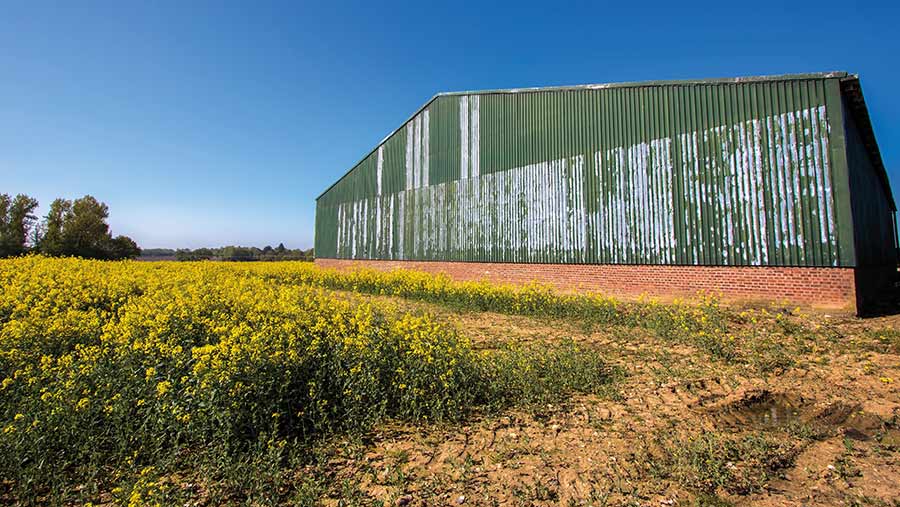Business Clinic: Can I put land and buildings into a pension fund?
 © Ian Dyball/Adobe Stock
© Ian Dyball/Adobe Stock Whether it’s a legal, tax, insurance, management or land issue, Farmers Weekly’s Business Clinic experts can help.
Neil Berry, partner at MHA, offers advice on how land and buildings can be put into a pension fund.
See also: Top tips for farmers on avoiding inheritance tax pitfalls
Q: I’ve heard that I can buy land and buildings with a pension fund or create one with land and buildings. How does this work and what are the benefits and pitfalls?
Do the recent Budget announcements on pensions affect this?
A: Holding property in a pension fund can be a valuable option.
Careful planning and consideration should be taken before entering into such a transaction to understand the impact this would have on all parties involved.
A pension fund can hold land and/or buildings. The underlying criteria is that the “property” to be held by the pension fund must be commercial in nature.
We often see this take the form of farmland and/or light commercial/industrial buildings.
How does it work?
- Funds from existing pension schemes can be used or, perhaps more commonly, can be transferred into a new fund, often a self-invested pension plan, to purchase the property in question. A company may look to use a small self-administered scheme
- The property being purchased by the fund needs to be bought at market value and a formal valuation process must take place. This is important as it is common the property being purchased by the fund is related to the fund owner, be that an individual, business or other.
- The party disposing of the property will be liable to capital gains tax (CGT) between its historical cost and market value
- The pension fund then therefore holds an investment asset. At this point, the property is outside the scope of CGT, should the property be sold on in future
- The property, now held within the fund, will demand a market-rate rent from the tenant. This market rate needs to be determined and updated on a regular basis to ensure it is set at a commercial rate
- Following the transaction, the property then sits outside of the seller’s estate and therefore outside of the scope for inheritance tax
- Borrowings can also be considered in a pension fund to support property purchases
Potential benefits
- Any growth in the value of the property in the pension fund is tax free and is outside the scope of CGT
- Any income generated by the pension fund, such as rental income for the use of the property, is free of income tax
- The party paying rent will likely receive income tax relief on such payment(s)
- Property can be purchased in whole or partial amounts, and also by multiple parties (funds) providing flexibility
- A positive cashflow can be created, as funds “tied up” in a pension can be exchanged for the property. This might be a way of releasing equity within a current land holding by an individual
Potential pitfalls
- If the property is the pension fund’s only or main asset, it can result in a lack of liquidity in the fund should you wish to withdraw
- There is a potential tax charge (CGT) on the initial sale of the property to the pension fund, but this is matched by potential income tax relief on contributions to the pension scheme as the fund has built up
- There will be other costs involved in the transactions – legal, valuation and surveyors’ fees, also stamp duty land tax, along with ongoing costs such as insurance
Budget changes
- The recent changes in the Budget to pension rules removed the cap on a pension fund, where previously there was a lifetime allowance
- The Budget changes have created opportunities of funding pension schemes further in respect of these transactions, but advice is imperative to fully understand the changes.
Do you have a question for the panel?
Outline your legal, tax, finance, insurance or farm management question in no more than 350 words and Farmers Weekly will put it to a member of the panel. Please give as much information as possible.
Email your question to FW-Businessclinic@markallengroup.com using the subject line “Business Clinic”.
